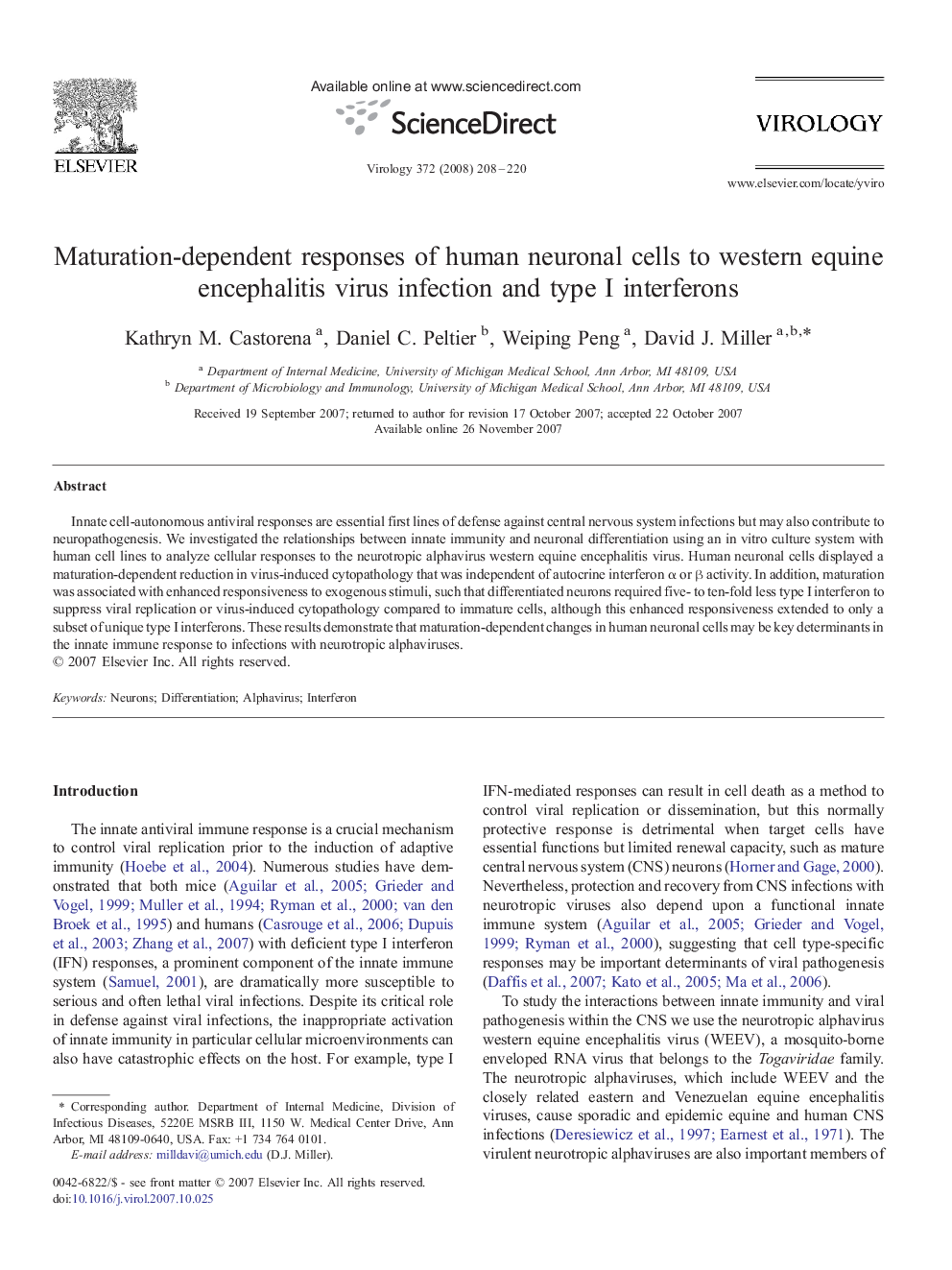| Article ID | Journal | Published Year | Pages | File Type |
|---|---|---|---|---|
| 3426509 | Virology | 2008 | 13 Pages |
Innate cell-autonomous antiviral responses are essential first lines of defense against central nervous system infections but may also contribute to neuropathogenesis. We investigated the relationships between innate immunity and neuronal differentiation using an in vitro culture system with human cell lines to analyze cellular responses to the neurotropic alphavirus western equine encephalitis virus. Human neuronal cells displayed a maturation-dependent reduction in virus-induced cytopathology that was independent of autocrine interferon α or β activity. In addition, maturation was associated with enhanced responsiveness to exogenous stimuli, such that differentiated neurons required five- to ten-fold less type I interferon to suppress viral replication or virus-induced cytopathology compared to immature cells, although this enhanced responsiveness extended to only a subset of unique type I interferons. These results demonstrate that maturation-dependent changes in human neuronal cells may be key determinants in the innate immune response to infections with neurotropic alphaviruses.
